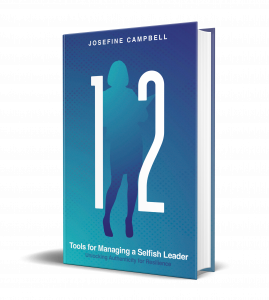
Share This Post
In my practice as a coach for leaders and talents, when dealing with stress, I often get the question, how should I explain to my partner, how to support me through this time of stress recovery? So in this article you will get five advices on how to prepare your partner to support you though stress recovery. If you are a partner for someone who is seriously stressed and who has to recover, you will get five pieces of advice here.
Basically, the art of recovering from stress is to deactivate the sympathetic nervous system, which has been overactive, and reactivate the para-sympathetic system. Hence, you can really recharge. It requires peace and the feeling of security.
What can you do when someone is severely stressed?
As a partner of someone who is severely stressed, you can help by helping to create that peace and security needed. If your partner is the type that generally is on top of things, it can be a new experience to see your partner broken and low on energy. For some people it feels weird. But it can be the door to adding another dimension to your relationship.
As a stress sufferer, there are a number of things you can explain to your partner to create the best possible conditions for your recovery:
- Explain what stress is: Explain that you have a real stress collapse. Explain what a stress collapse is. Ask to continue helping you by keeping you on your toes so, you don’t fall into the stress spiral. The stress spiral is when you don’t recover properly and therefore become stressed again. 50% of those who are on sick leave with stress have previously been on sick leave. Therefore, ask him/her to help you stay absolutely calm. Explain that you are sorry for the situation – because we know that you are- but that it is only for a period of time, and that you will be fine again shortly if you just follow these directions.
- Reorganize house duties: Agree on which tasks and duties will be relieved from you during this period and which you can continue to do. Here, I recommend that you can e.g., by your food online rather than shopping. You don’t need to surround yourself with traffic, noise, and many people during this period. On the other hand, you can e.g., wash clothes, take the dog out for a walk and occasionally pick up children. But your duties should be kept to a minimum.
- Support downtime: Emphasize that the cure for stress is being unconditionally low key. Therefore, this implies that you don’t take a larger part of the work in the home, but rather a smaller part for a period of time. Also emphasize here that you are recommended from us to sleep, watch television, and go for quiet walks. So, all of you have to be prepared for the fact that you lie in bed or on the couch for a period of time. On the other hand, you can promise that you’ll not be messy, and there is always clean and structured around you – otherwise it will be completely excruciating for others to live together with you.
- Retreat from social life: Ask for help not to be in the front row towards friends and family. So, that you do not have to explain yourself or be the go-to-person during the months when the healing of your nervous system and mind should take place. Here, I recommend that your partner can explain to your loved ones that you e.g., have worked too much, and therefore are on sick leave for a period of time. And that you need rest, and therefor they cannot drop by unannounced or expect you to participate in various family events. If you don’t have a partner, you do this yourself, of course. But be very careful not to explain to your surroundings why you have stress and what to do. Everyone has an attitude towards stress and, with a good heart, would like to interfere. This you should avoid at all costs. But it is fine to keep close to a few selected people who can understand you. Who will not judge you and who you don’t have to take care of.
- Empower your children: If you have children, the children must also be informed. Depending on how old the children are, they must be brought to an understanding that for a period of time mom/dad needs rest, and therefore needs to be at home and sleep as much as possible. Here you can explain to your children that it is because mom/or dad has had too much work and that she/he now needs to catch up on sleep and rest. Be aware that children will easily feel guilt when a parent is on sick leave. Therefore, it is important to explain to them why you are on sick leave, that it is not dangerous and that it is only for a few months. Tell them that the best thing they can do for their mother/father is to keep her/him up on her toes so, she doesn’t fall into the trap of sitting at the computer or doing too many things. Then the children feel more secure because they are given a task and can help influence the situation. You can also give the children some of your duties during this time – it doesn’t have to be big duties, but again, it will give your children a feeling of being able to influence the situation positively rather than feeling powerless.
The body, brain and nervous system are absolutely amazing. They can actually recover all by themselves, if only you get rest and feel secure in the time it takes to get back to normal. So, stay under the warm blanket, and watch Netflix for a few months until the nervous system has healed… all by itself.
I’ve written an article about 12 things you shouldn’t do when stressed. You can read it here.
Our vision is to help people not just to perform but, sparkle. This, by unlocking the power of personal energy in all organizations to create long-term value in a sustainable way.
If you would like to be updated with new articles and videos, sign up for our mailing list. Your mail is not shared with anyone and there are advantages to being on the list e.g., getting a mini course in your personal leadership.
Would you like the newest knowledge and inspiration sent directly to you?
Then subscribe to our monthly newsletter
In my practice as a coach for leaders and talents, when dealing with stress, I often get the question, how should I explain to my partner, how to support me through this time of stress recovery? So in this article you will get five advices on how to prepare your partner to support you though stress recovery. If you are a partner for someone who is seriously stressed and who has to recover, you will get five pieces of advice here.
Basically, the art of recovering from stress is to deactivate the sympathetic nervous system, which has been overactive, and reactivate the para-sympathetic system. Hence, you can really recharge. It requires peace and the feeling of security.
As a partner of someone who is severely stressed, you can help by helping to create that peace and security needed. If your partner is the type that generally is on top of things, it can be a new experience to see your partner broken and low on energy. For some people it feels weird. But it can be the door to adding another dimension to your relationship.
As a stress sufferer, there are a number of things you can explain to your partner to create the best possible conditions for your recovery:
- Explain what stress is: Explain that you have a real stress collapse. Explain what a stress collapse is. Ask to continue helping you by keeping you on your toes so, you don’t fall into the stress spiral. The stress spiral is when you don’t recover properly and therefore become stressed again. 50% of those who are on sick leave with stress have previously been on sick leave. Therefore, ask him/her to help you stay absolutely calm. Explain that you are sorry for the situation – because we know that you are- but that it is only for a period of time, and that you will be fine again shortly if you just follow these directions.
- Reorganize house duties: Agree on which tasks and duties will be relieved from you during this period and which you can continue to do. Here, I recommend that you can e.g., by your food online rather than shopping. You don’t need to surround yourself with traffic, noise, and many people during this period. On the other hand, you can e.g., wash clothes, take the dog out for a walk and occasionally pick up children. But your duties should be kept to a minimum.
- Support downtime: Emphasize that the cure for stress is being unconditionally low key. Therefore, this implies that you don’t take a larger part of the work in the home, but rather a smaller part for a period of time. Also emphasize here that you are recommended from us to sleep, watch television, and go for quiet walks. So, all of you have to be prepared for the fact that you lie in bed or on the couch for a period of time. On the other hand, you can promise that you’ll not be messy, and there is always clean and structured around you – otherwise it will be completely excruciating for others to live together with you.
- Retreat from social life: Ask for help not to be in the front row towards friends and family. So, that you do not have to explain yourself or be the go-to-person during the months when the healing of your nervous system and mind should take place. Here, I recommend that your partner can explain to your loved ones that you e.g., have worked too much, and therefore are on sick leave for a period of time. And that you need rest, and therefor they cannot drop by unannounced or expect you to participate in various family events. If you don’t have a partner, you do this yourself, of course. But be very careful not to explain to your surroundings why you have stress and what to do. Everyone has an attitude towards stress and, with a good heart, would like to interfere. This you should avoid at all costs. But it is fine to keep close to a few selected people who can understand you. Who will not judge you and who you don’t have to take care of.
- Empower your children: If you have children, the children must also be informed. Depending on how old the children are, they must be brought to an understanding that for a period of time mom/dad needs rest, and therefore needs to be at home and sleep as much as possible. Here you can explain to your children that it is because mom/or dad has had too much work and that she/he now needs to catch up on sleep and rest. Be aware that children will easily feel guilt when a parent is on sick leave. Therefore, it is important to explain to them why you are on sick leave, that it is not dangerous and that it is only for a few months. Tell them that the best thing they can do for their mother/father is to keep her/him up on her toes so, she doesn’t fall into the trap of sitting at the computer or doing too many things. Then the children feel more secure because they are given a task and can help influence the situation. You can also give the children some of your duties during this time – it doesn’t have to be big duties, but again, it will give your children a feeling of being able to influence the situation positively rather than feeling powerless.
The body, brain and nervous system are absolutely amazing. They can actually recover all by themselves, if only you get rest and feel secure in the time it takes to get back to normal. So, stay under the warm blanket, and watch Netflix for a few months until the nervous system has healed… all by itself.
I’ve written an article about 12 things you shouldn’t do when stressed. You can read it here.












